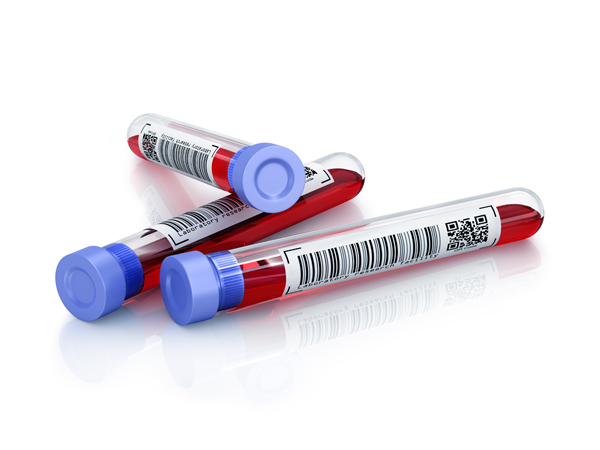Researchers at St. Jude Children’s Research Hospital in Memphis Tennessee, have identified the effects of a mutation common in children with high-risk leukemia, and the types of drugs which may be effective in increasing survival rates. The mutated gene IKZF1, (also known IKAROS), is found in up to 80 percent of individuals with high-risk acute lymphoblastic leukemia (ALL).
The IKZF1 mutation is compounded by the formation of a BCR-ABL1 fusion gene – also known as a Philadelphia chromosome, or Ph-positive ALL – which results in an abnormally-folded protein that contributes to the growth and division of cancer cells. The Ph-positive subtype of ALL makes up approximately 5 percent of all cases of ALL in children, and up to 30 percent of cases in adolescents and young adults. This percentage increases as the subtype becomes more common with age.
ALL is the most common form of pediatric cancer, and despite the use of targeted therapies such as tyrosine kinase inhibitors (TKIs), patients with both Ph-positive ALL and IKZF1 mutation have a poor prognosis. In the present study, the researchers identified that IKZF1 mutations affect select white blood cells containing the BCR-ABL1 fusion gene, and cause them to act like stem cells.
According to Charles Mullighan, M.D., M.B.B.S., and member of the St. Jude Department of Pathology, “The research shows why, in this era of targeted therapies, Ph-positive ALL patients who also have IKZF1 mutations fare so poorly. The insight also led us to a promising new treatment strategy.”
The research article also identified how the mutation affects development and treatment of the disease in patients with Ph-positive ALL. The results were published online in the journal Cancer Cell.
The BCR-ABL1 fusion gene is also present in patients with another type of cancer known as chronic myeloid leukemia (CML), however the IKZF1 mutation is not associated with CML. CML almost exclusively occurs in adults, and can be relatively successfully treated with TKIs. “We started this study in part to understand why IKZF1 mutations were selectively associated with ALL, not CML,” said primary author Michelle Churchman, Ph.D., and a St. Jude staff scientist.
Yet another mutation complicates researchers’ understanding of Ph-positive ALL; the ARF gene encodes a protein responsible for tumor suppression, and is mutated in approximately half of those with Ph-positive ALL. Churchman was the first scientist in this field to develop a mouse model of the disease, which contained the IKZF1 mutation with Ph-positive ALL. She created two different forms of the diseased mice: one with the ARF mutation, and one without.
In the mouse models, researchers observed that IKZF1 mutation in combination with the ARF lesion resulted in Ph-positive ALL disease, as opposed to CML. The combinatory effects of the gene mutations caused pre-B cells – a class of white blood cell – to behave like stem cells, and increase production of adhesion proteins necessary for cells to stick together. These clumps of cells were then able to evade chemotherapy treatment by “hiding” within the bone marrow.
One of the adhesion proteins that was overexpressed in the diseased blood cells – known as focal adhesion kinase (FAK) – has been found in other types of cancerous tumors. FAK inhibitors have been developed in order the combat their effects.
Armed with the knowledge of how these mutations contribute to progression of ALL, the researchers screened 483 compounds and were able to identify a class of retinoid drugs that prevented the white blood cells from clustering together. In particular, they identified a cancer drug called bexarotene as well as four other drugs capable of preventing cell aggregation.
“The findings highlight the potential of drugs that promote differentiation and work synergistically with existing therapies to save lives and improve outcomes for these high-risk patients,” commented Mullighan.
Some of the drugs have already been approved by the FDA, or are currently being tested in clinical trials. In combination with FAK inhibitors and TKIs, the researchers found the retinoids boosted the ability of the other treatments to kill cancerous cells, and extended the lives of Ph-positive ALL mice in the lab.
Sources:
- Retinoids may increase effectiveness of targeted therapies against high-risk leukemia – http://www.sciencedaily.com/releases/2015/08/150827154646.htm
- Churchman, M., Low, J., Qu, C., Paietta, E., Kasper, L., Chang, Y., Payne-Turner, D., Althoff, M., Song, G., Chen, S., et al. (2015). Efficacy of Retinoids in IKZF1-Mutated BCR-ABL1 Acute Lymphoblastic Leukemia. Cancer Cell.












Join or login to leave a comment
JOIN LOGIN